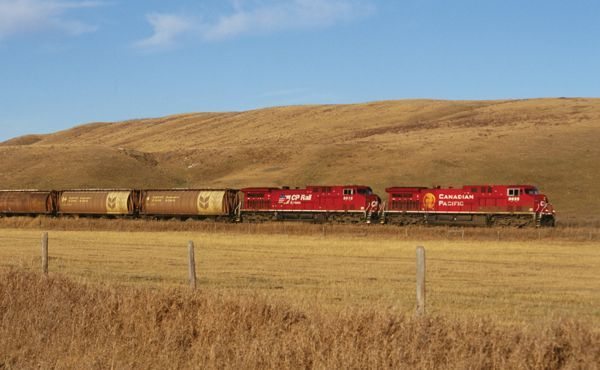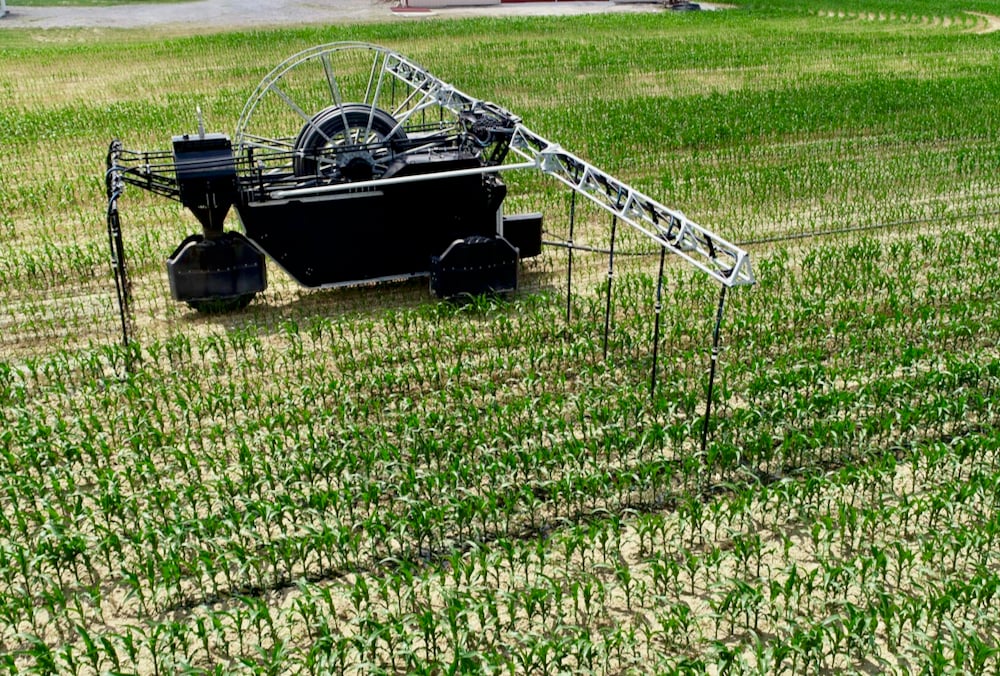Railway reluctance on drainage costs will be carried downstream

Railway companies are more frequently refusing to pay for drainage infrastructure costs, some Ontario municipalities say.
Read Also

Considerations for the right place for manure
When it costs more to apply manure to high fertility fields than the manure is worth, it may be time…
David Taylor, director of legal services at the Municipality of Chatham-Kent, said the railways claim the province cannot constitutionally apply its rules to interprovincial railways, which are federally regulated.
“We’ve always had a positive experience working with railways, and it seems like there’s been a very significant change in approach,” Taylor said. “What they’re really saying now is this entire Drainage Act doesn’t apply to them.”
Why it Matters: If this argument stands, municipalities and property owners will bear drainage project costs, likely amounting to millions of dollars.
Taylor said attempts to remove railway land from the Drainage Act’s holistic approach to water management impede the ability of drainage systems to function correctly.
Chatham-Kent’s is ground zero for this emerging issue. Its flat topography contains 4,000 kilometres of drain, including extensive dykes and pumping stations that account for eight per cent of the province’s total drain length. Much of which is intersected by rail lines.
Its extensive water runs also play a significant role in drains under the Act.
Brad Snobelen, president of the Kent Federation of Agriculture, said if CPKC wins the dispute, it will set a precedent that will impact the entire rail bed.
“We have very productive soil, but we need drainage to make everything work,” said Snobelen. “You get out into Dover (with) the pumping stations, the canals, and the incredible system that exists out there just to farm – it has to be protected. When anybody tries to disrupt the system, it causes chaos.”
Taylor said if railways refuse to pay their share of drainage costs, especially given the water shed from railbeds and the drainage benefits they receive, neighbouring property owners will bear the financial burden. In Chatham-Kent, that predominantly means farmers.
“It’s once again adding more burden onto landowners,” explained Snobelen. “Not only do you have challenges with taxes, weather and all the other things going on on your farm, you now have a drainage problem that you can’t do anything about.”
The municipality’s ongoing dispute with the Canadian Pacific-Kansas City Railway (CPKC) is winding its way through the Drainage Act referee system to address non-payment and a refusal to issue work permits on land authorized under the Drainage Act.
When contacted by Farmtario for comment, CPKC spokesperson Terry Cunha initially said the railway hadn’t told municipalities they wouldn’t pay or provide access as a matter of policy.
After reading Taylor’s letter to the Ontario Federation of Agriculture outlining the issue, Cunha said in an email that CPKC wouldn’t comment on the ongoing proceedings and wouldn’t clarify if other municipalities faced the same conflict.
The issue isn’t restricted to CPKC. The Rural Ontario Municipal Association (ROMA) said approximately 30 municipalities have reported the Canadian National Railway’s (CNR) reluctance to co-operate.
In 2023, CNR circumvented the Drainage Act referee process by insisting the Canadian Transportation Agency (CTA) tribunal address Sarnia’s dispute over unpaid drainage work on Crown corporation property.
In hopes of a resolution, Warwick Township Mayor Todd Case and Plympton-Wyoming Mayor Gary Atkinson approached Omar Alghabra, then-federal Minister of Transport, in June 2023 to address the $160,000 and $80,000 in outstanding fees CNR had owed the respective communities since 2020.
In a May 2023 media release, the municipal association alleged that CNR and other railways owed affected municipalities $500,000 in unpaid maintenance fees and a further $1 million in unpaid capital construction projects.
Additionally, it said a lack of cooperation contributed to the delay of $1.7 million worth of critical capital construction projects.
“Federally regulated industries must be held to the same standards as all property owners, including following local laws, bylaws and regulations,” association chair Robin Jones said in the statement. “CN is creating a false conflict between municipal and provincial laws and federal regulations.”
Jones told Farmtario in a phone interview that railbeds contribute to a host of drainage challenges that cost-sharing can offset under the Drainage Act legislation.
She said not every municipality can fight non-payment or cover increased costs.
“These bills are $200,000 and $300,000 and $400,000. That’s one of the reasons we’re fighting. We can’t leave our smallest municipalities in the position of draining their bank account,” Jones explained.
“It’s not just the taxpayers who have to cover the costs on the municipal side, but it puts the farmland at risk.”
ROMA and its lawyers have spent time and resources to back Chatham-Kent and Sarnia’s cases. Jones said dispute resolution through Drainage Act referee adjudication is, in her opinion, the only path unless the railways intend to pose a constitutional question.
“The federal railway saying, ‘the provincial legislation does not apply to us because we’re federal’ – that is a constitutional question, which needs to be resolved in court,” Jones explained. “And, probably the province, but for sure, the municipality and ROMA will be serving the paperwork to take it to court to hear the constitutionality matter.”
Source: Farmtario.com

